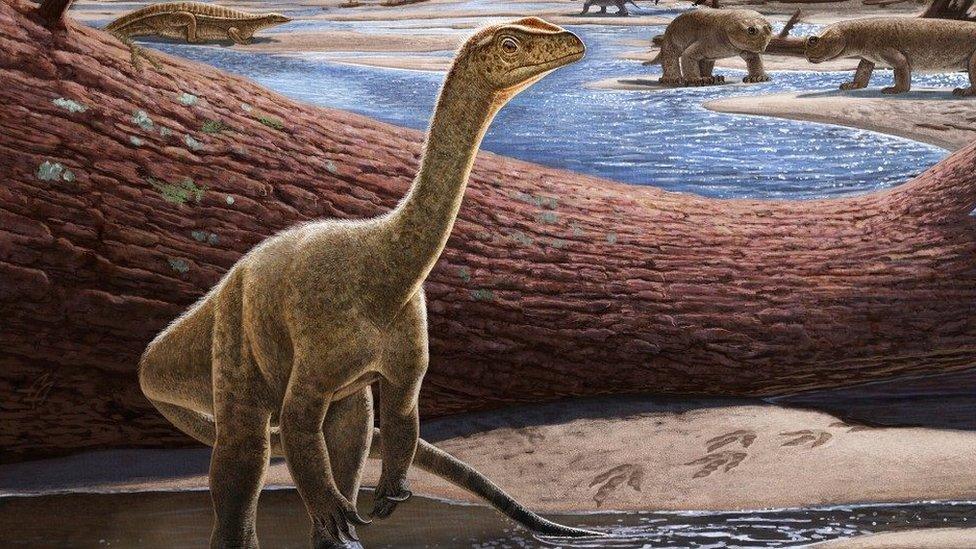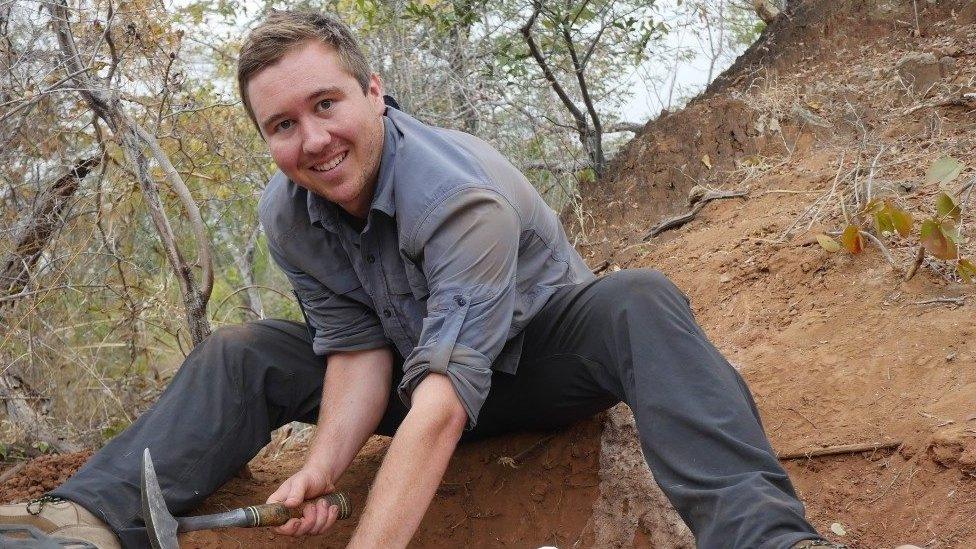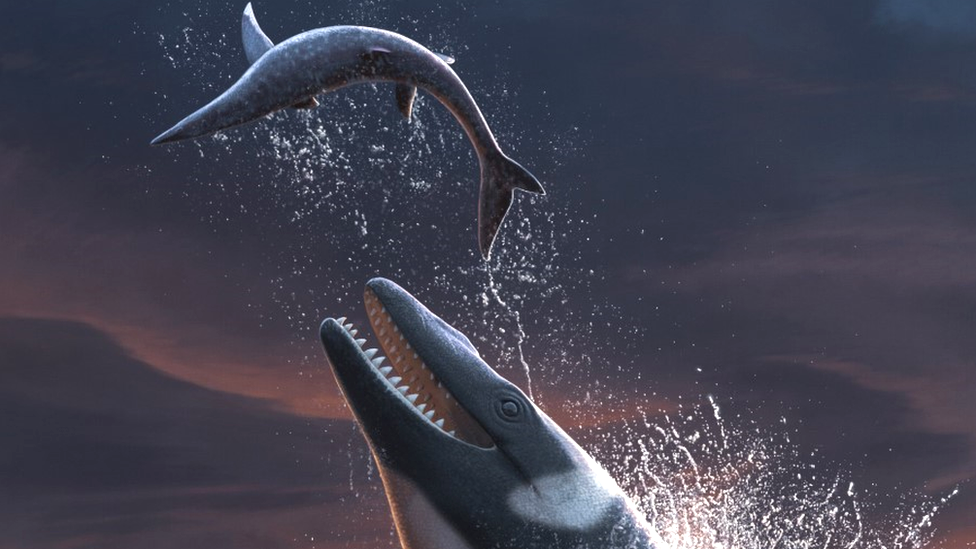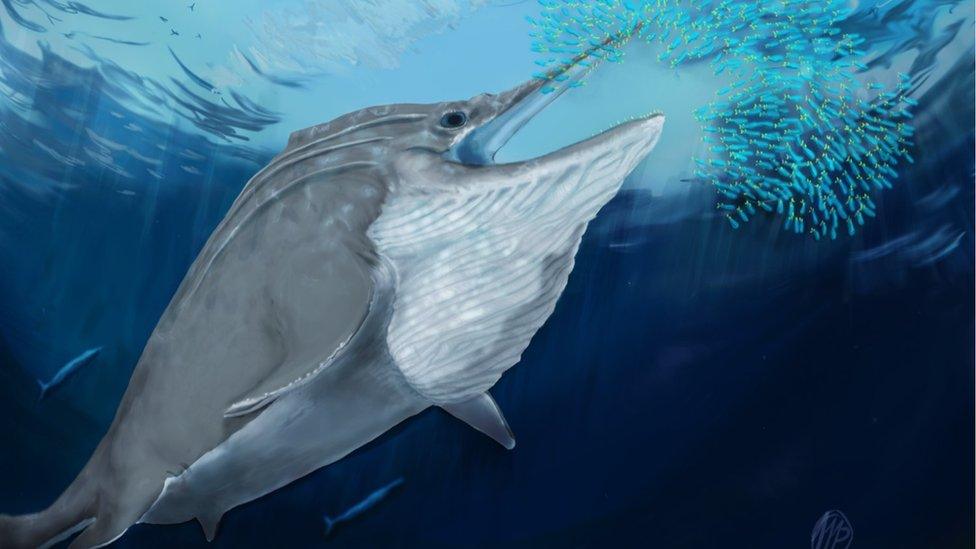Africa's oldest dinosaur discovered and identified by scientists
- Published
- comments

An artistic reconstruction of the Mbiresaurus raathi
Scientists in Zimbabwe have uncovered the bones of Africa's oldest dinosaur.
Identified as the Mbiresaurus raathi, it would have roamed Africa around 230 million years ago!
The parts of the skeleton were found on digs in 2017 and 2019 by researchers from Zimbabwe, Zambia and the United States, and have now been studied and identified.
The skeleton is nearly fully intact with only a small part of its hand and skull missing.
Having a near complete skeleton means that researchers were able to discover a lot about what the Mbiresaurus raathi would have been like.
According to researchers it would have been around six feet tall, stood on two legs and would have eaten mostly plants, small insects and even some small animals.

Christopher Griffin in 2017, excavating part of the Mbiresaurus raathi skeleton
They would have weighed around 30kg and had a long neck and tail and pointy teeth!
Christopher Griffin, the lead author of the study, said: "These are Africa's oldest known definitive dinosaurs, roughly equivalent in age to the oldest dinosaurs found anywhere in the world.
"The oldest known dinosaurs — from roughly 230 million years ago, the Carnian Stage of the Late Triassic period — are extremely rare and have been recovered from only a few places worldwide, mainly northern Argentina, southern Brazil, and India."
Mbiresaurus raathi has been named after the area in which is was found, Mbire district, northeast of Zimbabwe and a palaeontologist Michael Raath, who first reported fossils in this region.
He added: "What this discovery does is it broadens the range that we knew the very first dinosaurs lived in."
Having an almost complete skeleton means that future researchers will be able to learn even more about the species.
- Published30 August 2022

- Published28 April 2022

